Imagine coming home to a fluffy, snow-white companion whose favorite place is right in your arms. The Maltese, renowned for their sweet nature and irresistible cuddles, are masters at turning every moment together into a heartwarming memory. If you’re wondering whether these enchanting little dogs truly love to snuggle, dive in and discover the affectionate secrets that make the Maltese one of the world’s most beloved cuddle buddies.
Why Maltese Are Known for Cuddling
For centuries, the Maltese has been cherished for their devotion and affectionate spirit. Originally bred as lapdogs, these little charmers spent their days nestled in the laps of royalty, providing warmth, comfort, and unwavering companionship. The Maltese’s legacy as a cuddle companion is deeply rooted in their history, and it’s a trait that remains strong to this day.
Their strong desire for human companionship is legendary. Maltese thrive when they’re in close contact with their favorite people, and snuggling is their way of expressing love. It’s not just a preference—it’s in their DNA. Generations of selective breeding for gentleness and affection have resulted in a dog who instinctively seeks closeness and connection through touch.
The Affectionate Nature of the Maltese
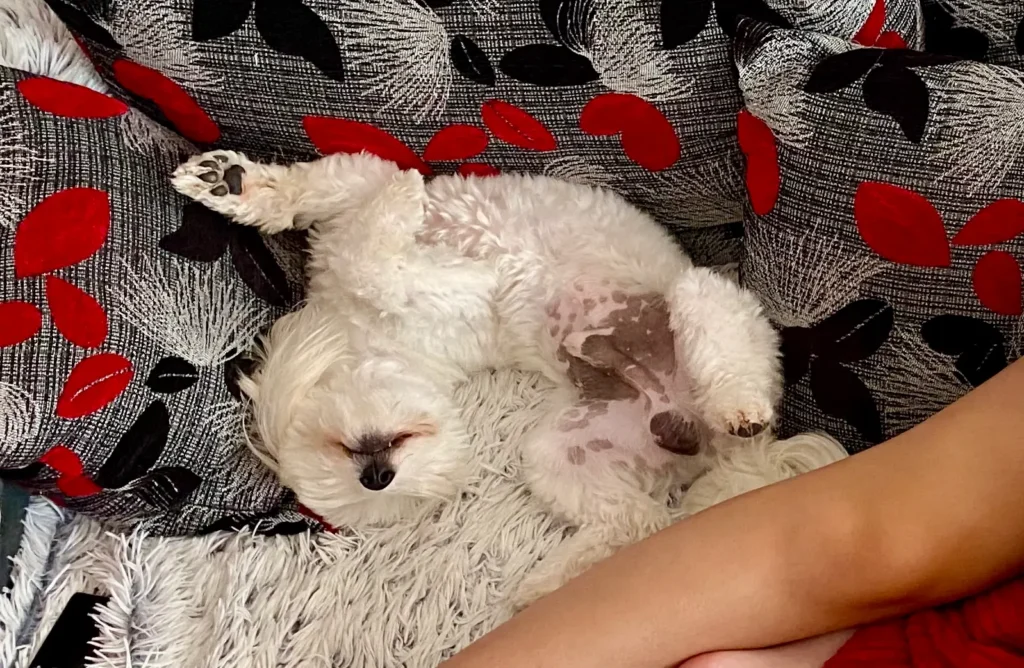
The very essence of the Maltese breed is affection. These dogs live for interaction, always eager to form strong bonds with their owners. If you’re sitting on the couch, a Maltese will likely seek your lap or curl up pressed against your side. This behavior isn’t simply cute—it’s an outward display of their intense devotion and loyalty.
Maltese are known for comforting cuddles and gentle dispositions, making them wonderful therapy dogs who can easily put a smile on anyone’s face. Their bright expressions and persistent desire for closeness mean that they’re happiest when they feel safe and loved by their human family.
The Science Behind Cuddling in Dogs
Why do some dogs love to cuddle more than others? Research suggests that close contact with humans releases oxytocin—the “love hormone”—in both you and your dog. For Maltese, who are hardwired to seek affection, cuddling not only strengthens the bond but also provides a sense of calm and security.
This physiological reaction is especially powerful in breeds like the Maltese, whose emotional well-being is closely tied to social interactions. Regular snuggles can help reduce stress, boost happiness, and even lower anxiety for both pet and owner.
Understanding the Maltese Lap Dog Heritage
Maltese dogs trace their origins to the Mediterranean island of Malta, where they were pampered by nobility and cherished as lap warmers for centuries. This heritage as a favored companion of royalty set the foundation for their affectionate nature.
Having spent generations living closely with humans, the Maltese became experts at reading human emotions and responding appropriately. Whether offering comfort during a tough day or simply sharing a warm cuddle, these dogs are tuned into their owners’ moods and needs.
Behavioral Signs Your Maltese Loves to Cuddle
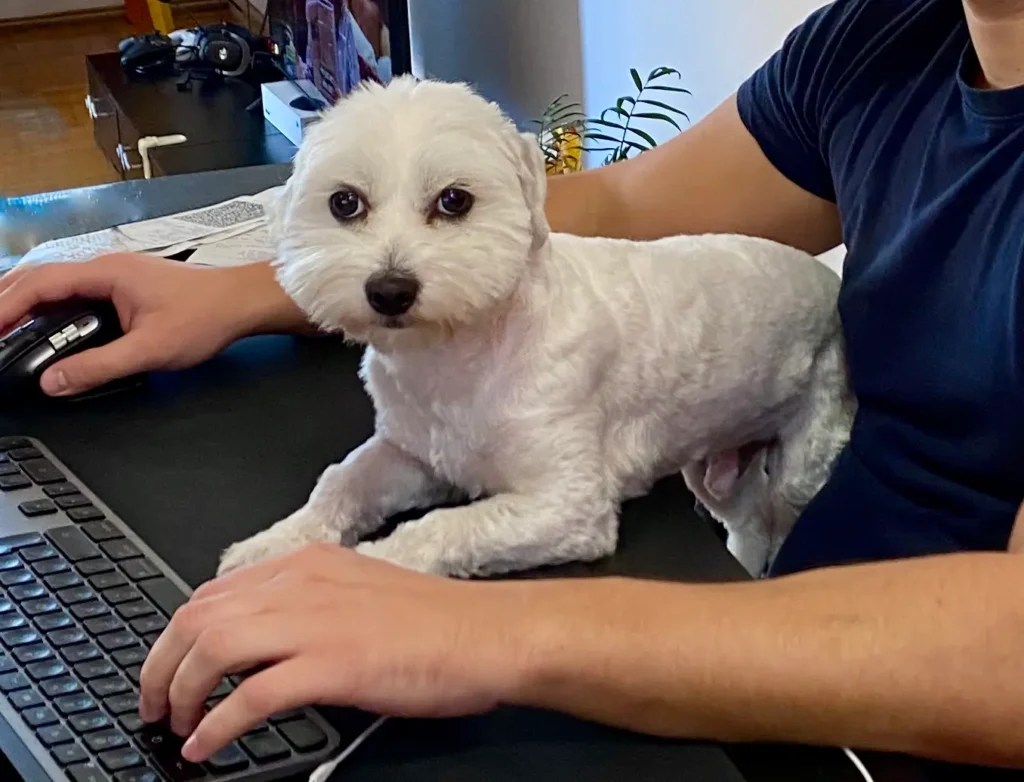
Wondering how to tell if your Maltese truly loves snuggling? Here are some common behaviors that reveal their affectionate side:
- Constantly seeking your lap or close proximity
- Nuzzling, resting their head on you, or leaning against your body
- Curling up beside you at bedtime or during downtime
- Pawing or gently nudging you for attention and affection
- Relaxed body language, wagging tails, and contented sighs during cuddles
- Following you from room to room, eager to be wherever you are
Each Maltese is unique, but these behaviors show a universal language of canine affection. If your dog displays some or all of these traits, it’s a clear sign that cuddling is one of their favorite activities.
How Cuddling Strengthens the Bond
Snuggling isn’t just about physical closeness—it’s a vital way to reinforce the deep, emotional connection between you and your Maltese. When you engage in regular cuddle sessions, your dog learns to trust you and feels a sense of security that lasts beyond those quiet moments together.
- Builds trust and eases anxiety
- Helps your Maltese adapt to new environments or changes in routine
- Can make training and socialization easier, as your dog feels safe and supported
- Creates a positive association with your presence, reducing the risk of separation anxiety
Forming these emotional bonds is essential for the Maltese, whose sensitive nature means they crave unconditional love and reassurance from their family.
Common Situations Where Maltese Seek Cuddles
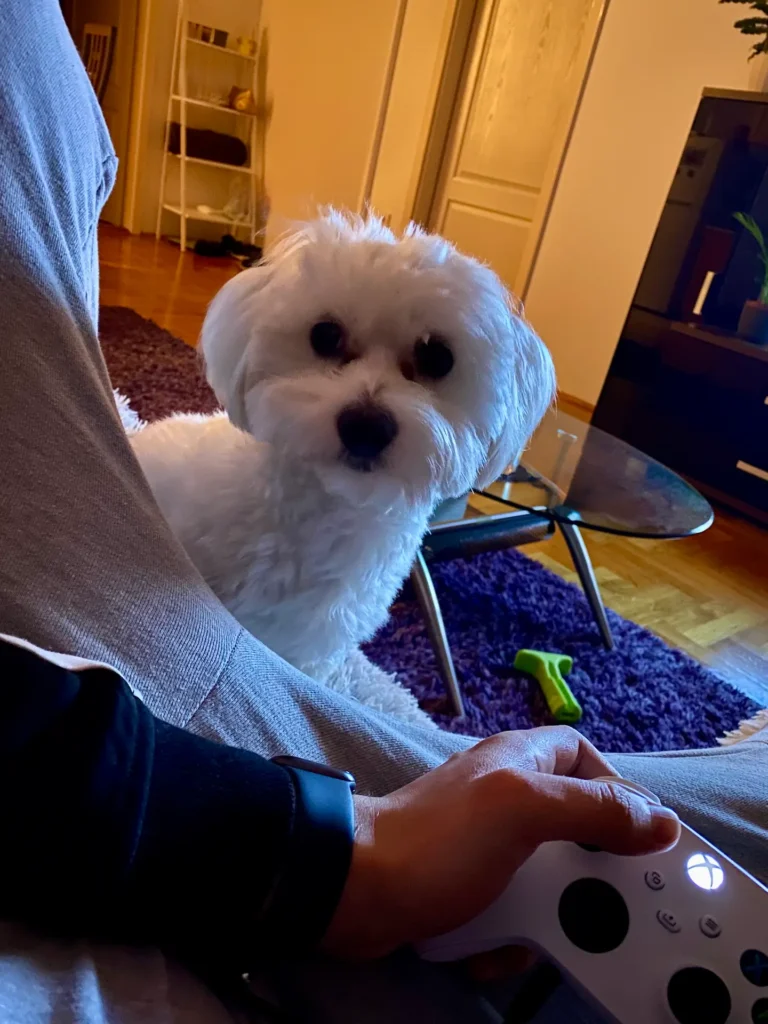
Some moments elicit even more affectionate behavior from a Maltese. Understanding these situations can help you be ready to offer the comfort your dog craves:
- After being left alone: When reunited, Maltese often seek extra closeness as reassurance
- During storms or loud noises: They may turn to you for security when they feel frightened
- Bedtime or naps: Many Maltese want to snuggle up for warmth and comfort
- When you’re feeling sad or stressed: These intuitive dogs sense emotions and often offer cuddles to help soothe you
- After play sessions: Winding down with a cuddle is a favorite ritual for many Maltese
By recognizing these moments, you can respond to your dog’s emotional needs, deepening the affectionate bond you share.
Do Maltese Cuddle with Everyone?
While Maltese are renowned for their friendly nature, their deepest cuddles are usually reserved for their trusted owners and close family members. They’re eager to meet new people and often display a warm, welcoming attitude, but the level of intimacy and trust that leads to prolonged snuggle sessions is built over time.
Don’t be surprised if your Maltese is cautious with strangers at first. Building this trust is an important process, and as your bond grows, so will your dog’s willingness to seek out affectionate moments with you.
Personality Traits That Make Maltese Affectionate
Certain breed traits contribute to the Maltese’s legendary snuggly disposition:
- Gentleness: Maltese are naturally soft-mannered and tender
- Playfulness: Their love of fun and games often ends with naptime cuddles
- Intelligence: They quickly learn routines and understand what pleases their owners, including cuddle time
- Loyalty: Their devotion is unwavering—cuddling is an expression of this loyalty
- Adaptability: Whether in a small apartment or a bustling family home, Maltese adjust to their environment as long as they’re close to their people
These qualities combine to make the Maltese not just an adorable companion, but a deeply devoted and affectionate friend.
Cuddling and Separation Anxiety in Maltese
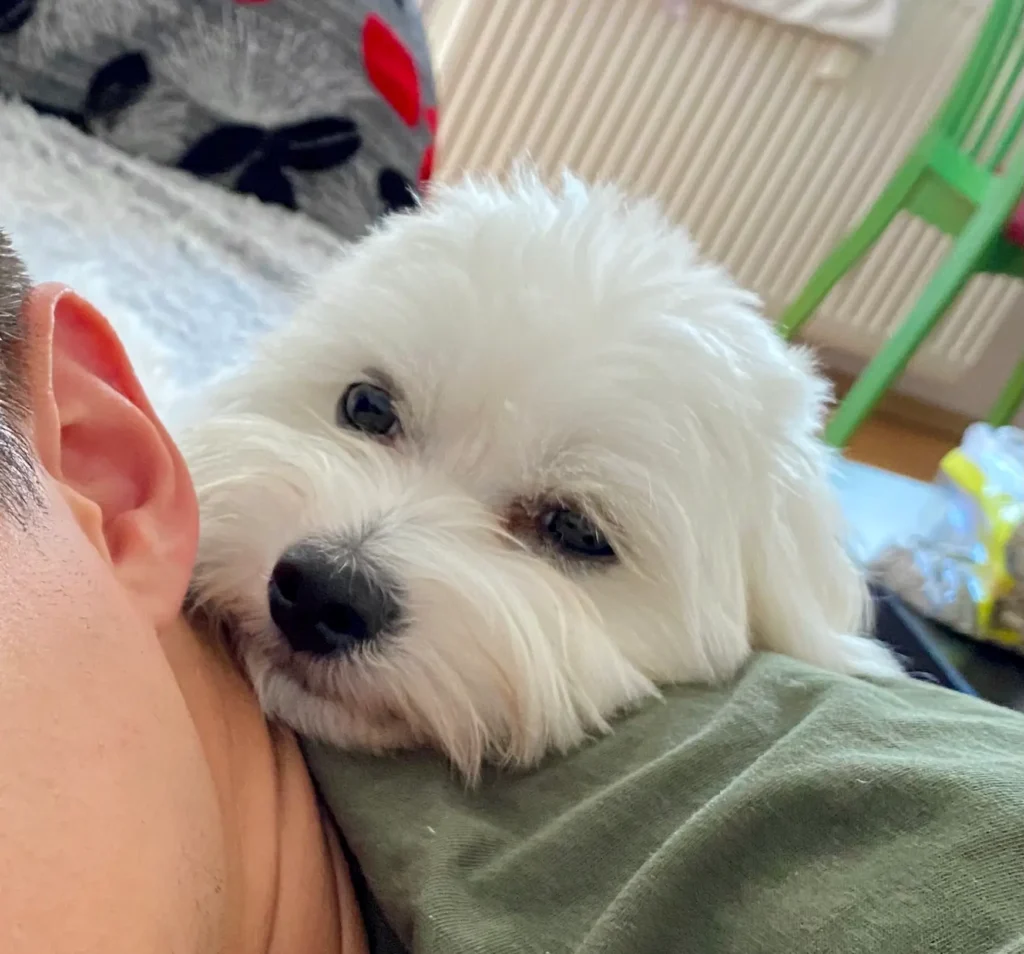
One of the most important things to know about the Maltese breed is their sensitivity to being left alone. These dogs form intense attachments to their humans, and without regular companionship, they may develop separation anxiety—marked by behaviors like excessive barking, destructive chewing, or attempts to escape.
Cuddling plays a crucial role in alleviating these anxieties. Physical closeness reassures your Maltese that they’re loved and safe. For families that are away from home often, it’s vital to carve out extra cuddle time before and after periods of separation to keep your dog emotionally balanced.
How to Encourage Cuddling with Your Maltese
If your Maltese isn’t a natural cuddler right away, don’t worry. While most thrive on affection, every dog has their own comfort level. To encourage snuggling, create an inviting, positive environment:
- Use soft, cozy blankets or beds to make cuddle spots irresistible
- Invite your dog onto your lap during relaxed moments—never force it
- Reward relaxed body language and gentle cuddling with praise or treats
- Establish a daily routine that includes quiet bonding time
- Respect your dog’s boundaries—some Maltese prefer to snuggle beside rather than on top of you
Patience and consistency go a long way. As your Maltese learns to associate close contact with feelings of safety and happiness, you’ll likely see those affectionate behaviors blossom.
Differences in Affection: Maltese vs. Other Breeds
Many breeds love to cuddle, but the Maltese stands out for their unwavering devotion to physical closeness. Unlike more independent breeds, they’re less likely to wander off for alone time or reject snuggle invitations. Instead, they seek out your presence whenever possible, whether you’re reading, watching TV, or simply relaxing at home.
This “shadow dog” behavior is a hallmark of companion breeds like the Maltese, setting them apart from more aloof or stubborn breeds. It’s one reason why Maltese are consistently chosen as therapy and comfort dogs—their need for touch translates into natural empathy and support for their owners.
Socialization and Cuddling Habits
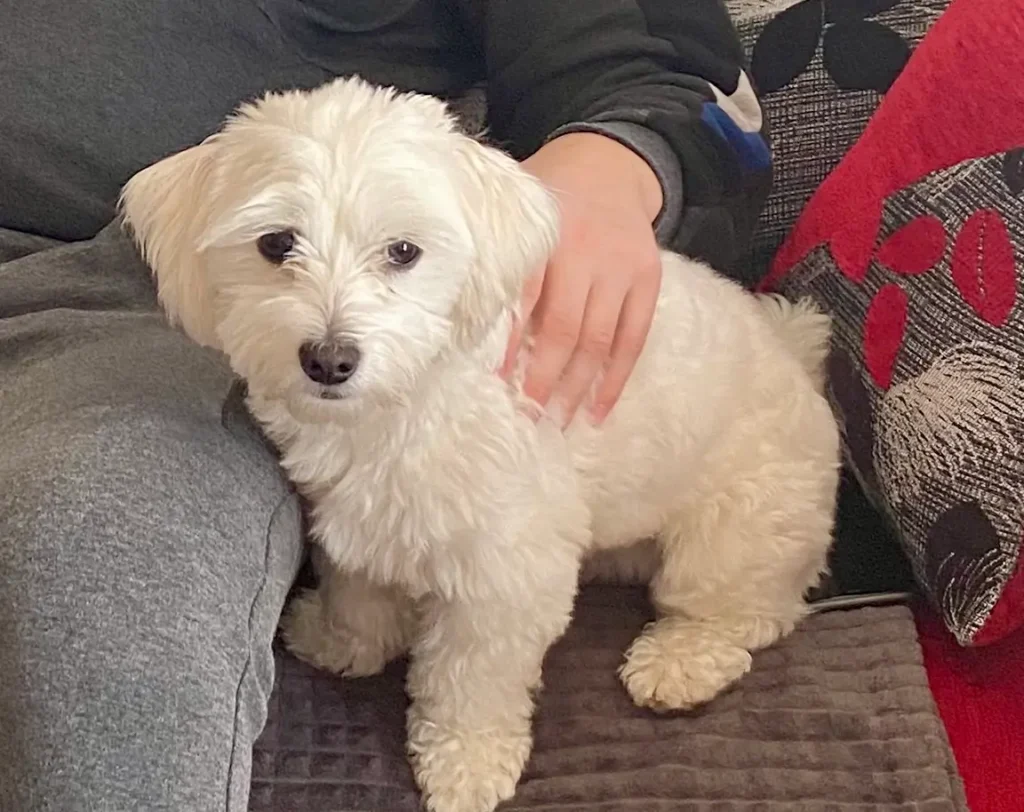
Early experiences play a role in shaping your Maltese’s approach to affection. Puppies raised in nurturing, loving homes are more likely to grow into confident, cuddly adults. Socialization with gentle handling, positive reinforcement, and calm environments helps build trust and healthy bonds.
It’s important to expose young Maltese to a variety of experiences, people, and gentle interactions. The more positive contact they have, the more they’ll learn to seek and enjoy cuddling as a natural part of life.
Obstacles to Cuddling: Understanding Boundaries
Even the most affectionate Maltese will have moments when they aren’t in the mood for close contact. Respecting your dog’s signals—like turning away, growling, or pulling back—is key to building trust. Never force snuggle time, as this can create anxiety or resistance.
Common reasons a Maltese might shy away from cuddling include:
- Overstimulation or excitement
- Feeling unwell or uncomfortable
- Needing a break from attention (especially in busy households)
- Being too warm (Maltese have long, thick coats that can trap heat)
By paying attention to your dog’s cues, you can ensure that snuggling remains a positive, cherished experience for both of you.
The Role of Training in Affectionate Behavior
Training isn’t just about commands and obedience—it shapes how your Maltese relates to you and others. Positive reinforcement, such as treats and praise when your dog exhibits gentle, affectionate behavior, reinforces safe, enjoyable interactions.
Avoid negative reactions or scolding if your dog isn’t interested in cuddling at a given moment. Instead, reward desired behaviors and maintain a calm, reassuring presence. These practices establish a foundation of trust, which paves the way for those long, loving cuddle sessions.
Cuddling and Children: Tips for Safe Bonding
The Maltese’s gentle temperament makes them excellent family pets, but teaching children about respectful interactions is crucial. When introducing Maltese to kids, provide supervision and guidance:
- Show children how to approach calmly and gently
- Teach them to recognize when the dog wants space
- Encourage calm, quiet cuddle sessions rather than rough play
- Reinforce the idea that all affectionate moments should be mutual and never forced
With patience and proper instruction, Maltese and children can form deep, affectionate connections built on trust and respect.
Affectionate Habits Beyond Cuddling
Cuddling is a cornerstone of Maltese affection, but it’s not their only way to express love. These little dogs show devotion and loyalty through a variety of behaviors:
- Following you everywhere—from the kitchen to the couch and beyond
- Greeting you enthusiastically with tail wags and “smiles” every time you come home
- Bringing toys or treats as a gesture of affection and sharing
- Barking to alert you, demonstrating protective loyalty
- Offering gentle licks or resting a paw on you as reassurance
These daily demonstrations are all part of their affectionate repertoire, reinforcing the strong bonds Maltese form with their humans.
How Environment Affects Cuddling Behavior
The environment you provide can influence how often and how deeply your Maltese seeks physical closeness. Calm, quiet homes with regular routines tend to encourage calm, relaxed cuddling. Households with lots of activity may see a Maltese alternating between seeking attention and needing downtime.
Creating a safe space for your dog—a designated bed, favorite blanket, or cozy corner—gives them the confidence to approach you for cuddles on their own terms.
Maltese as Therapy and Emotional Support Dogs
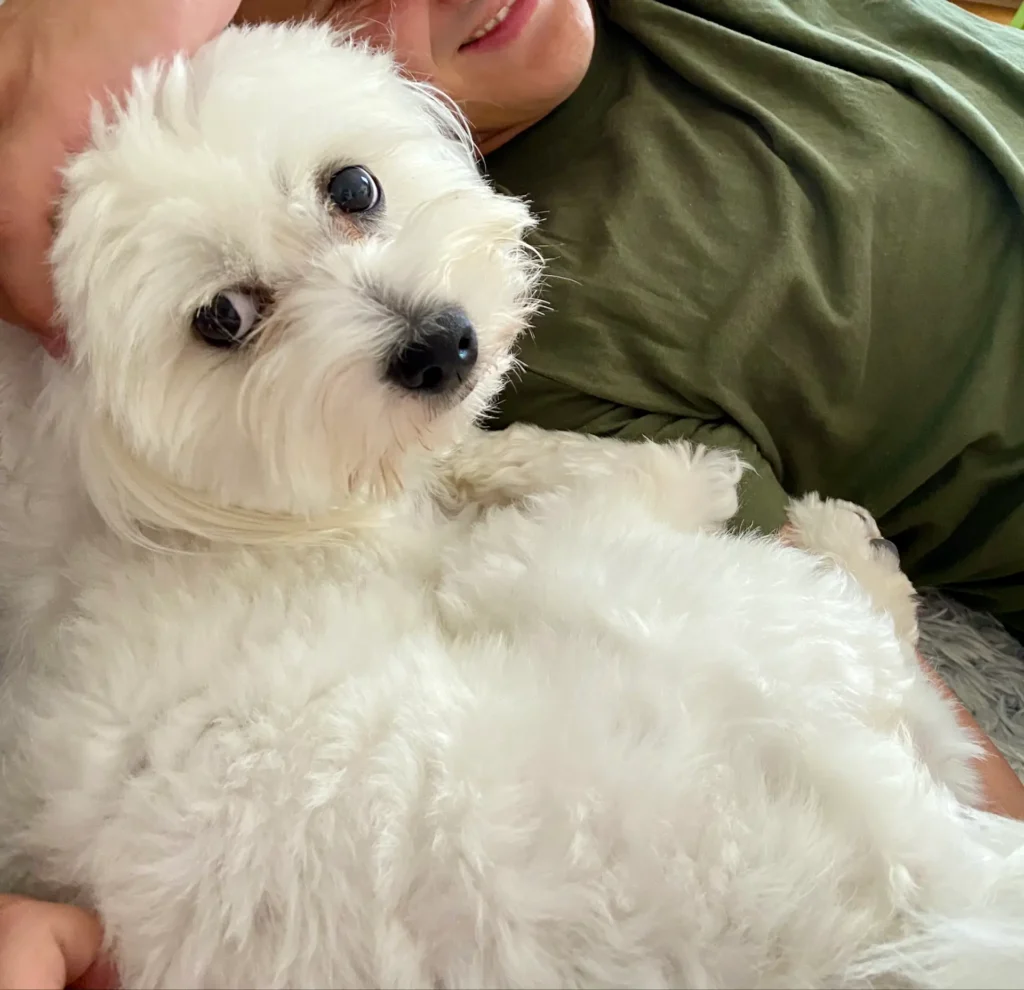
The Maltese’s natural empathy and close bond with humans make them outstanding candidates for therapy and emotional support work. Their comforting presence and gentle cuddles provide real benefits to people in need of emotional support, from hospital patients to those coping with anxiety or depression.
Their small size and intuitive nature allow Maltese to form connections and offer soothing companionship wherever they go.
Signs Your Maltese Needs More Affection
Most Maltese are experts at letting you know when they crave extra attention. Some signs your dog is seeking more closeness include:
- Restlessness or pacing when you’re not nearby
- Whining, barking, or pawing at you
- Trying to climb onto your lap during your activities
- Looking at you expectantly from their bed or favorite spot
- Seeking contact with other pets if you’re unavailable
Responding to these signals with affection and reassurance helps prevent feelings of neglect or isolation and keeps your Maltese’s spirit happy and engaged.
Balancing Affection and Independence
While it’s tempting to shower your Maltese with endless snuggles, it’s important to offer opportunities for independent play and quiet time, too. Over-coddling can make your dog overly dependent, leading to anxiety when you’re not around.
Encourage healthy independence by:
- Offering interactive toys or puzzles
- Leaving your Maltese alone for short periods, gradually increasing the time
- Praising calm behavior when they relax by themselves
- Creating a safe, comfortable space just for them
This balance ensures your Maltese remains confident and well-adjusted, enjoying the best of both worlds—loving companionship and self-assurance.
Seasonal Changes in Cuddling Behavior
Maltese may cuddle more during colder months, seeking warmth and comfort from body heat. In warmer weather, they might prefer lying beside you or on cool surfaces rather than snuggled in your arms. Pay attention to your dog’s cues and adjust your approach to cuddling accordingly, prioritizing comfort and well-being year-round.
Creating the Perfect Cuddling Environment
Setting the stage for memorable cuddle sessions can make a world of difference for you and your Maltese. Consider these tips:
- Choose a quiet, comfortable spot free from distractions
- Use soft blankets and cushions for coziness
- Set the right mood with gentle lighting or soothing music
- Maintain a consistent routine for comforting predictability
- Keep your Maltese well-groomed to make snuggling enjoyable for both of you
By making cuddle time a regular, positive part of your daily routine, you’ll quickly become the favorite spot for your Maltese to seek warmth and security.
What If My Maltese Doesn’t Like to Cuddle?
While the breed is known for affection, individual Maltese may have different preferences. Some may favor playful interactions, while others crave constant closeness. If your Maltese isn’t a huge snuggler, don’t panic—respect their boundaries and focus on cultivating trust.
Try gentle petting, sitting close by, or offering treats during low-key moments. Over time, even the most independent Maltese can warm up to cozy cuddle sessions if they feel secure and understood.
Cuddling as Part of Maltese Health and Happiness
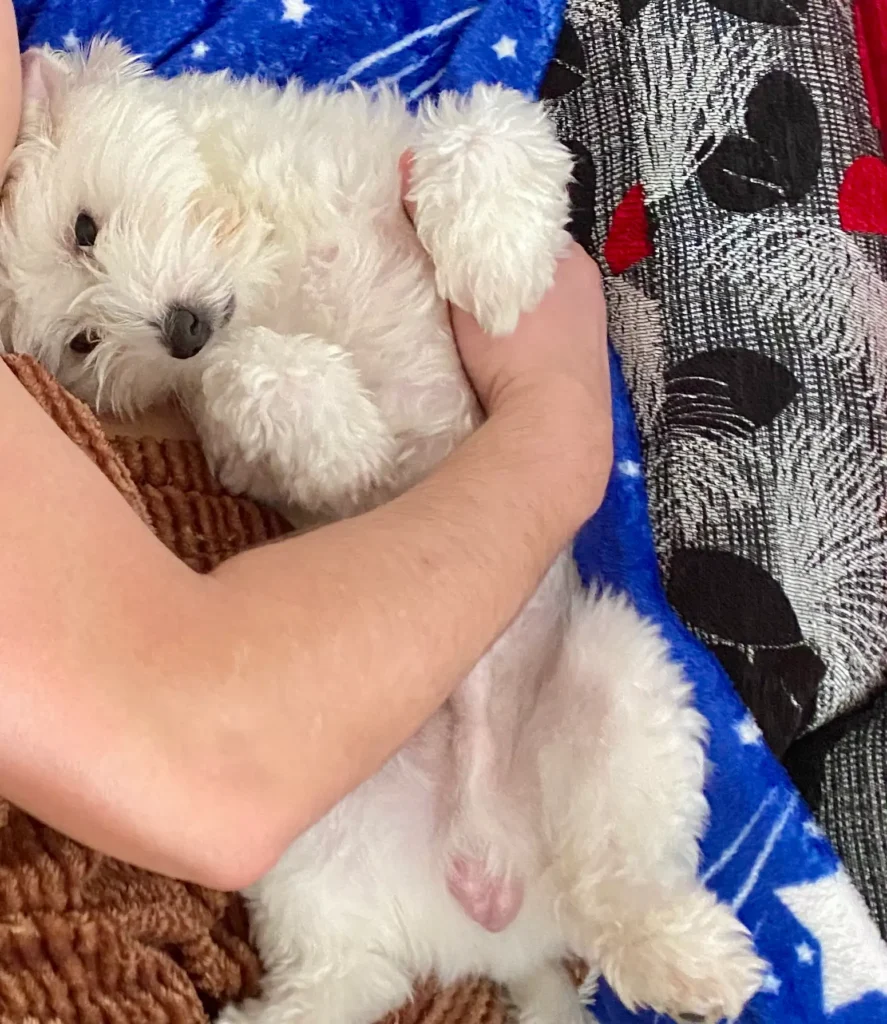
Physical affection is more than an emotional need—it supports the overall health and happiness of your Maltese. Regular cuddling can:
- Reduce stress and anxiety for both dog and owner
- Promote feelings of safety and contentment
- Strengthen your dog’s confidence, especially in new situations
- Help you monitor your Maltese’s physical condition through close contact
Affection and bonding are powerful predictors of a Maltese’s overall well-being, making cuddle time an essential part of daily care.
FAQ: Cuddling and the Maltese Breed
Both male and female Maltese can be equally snuggly, with personality and upbringing often being bigger factors than gender. Early socialization and positive experiences shape affectionate habits more than sex-specific traits.
Many owners report that Maltese become even more attached and cuddly with maturity. Young puppies are often play-driven, but as they settle into adult life, they may seek downtime and cuddles more often.
There’s no set rule, but most Maltese thrive with regular, daily affection. Even a few minutes of quiet contact during your morning routine, after work, or before bed can make a world of difference.
Balance is key—while affection is necessary, ensure your dog has opportunities for independent play and self-soothing, so they don’t become overly dependent or anxious when you’re away.
User Stories: Heartwarming Maltese Cuddle Tales
Ask Maltese owners, and you’ll hear story after story about their dogs’ love of snuggling. Some recall their dogs burrowing under blankets on cold nights, while others describe early mornings greeted by soft paws and gentle kisses. These stories have one theme in common: the Maltese’s incredible ability to provide comfort, warmth, and companionship through affectionate contact.
Many owners share how their Maltese intuitively knows when someone is sad, sick, or under stress—offering cuddles just when they’re needed most. Such anecdotes highlight the emotional intelligence of the breed and their unique role as comforting household members.
Debunking Common Myths About Maltese Affection
Myth: Maltese only love their favorite person.
Reality: While they do form strong bonds with a primary caregiver, most Maltese are friendly and loving with the whole household, including children and other pets.
Myth: Maltese are too delicate for snuggling.
Reality: Despite their dainty appearance, Maltese are sturdy little dogs who relish affection and physical closeness. With gentle handling, they can enjoy plenty of cuddles safely.
Myth: Cuddling will make my Maltese clingy.
Reality: Regular, balanced affection actually helps your dog develop healthy independence and confidence, while reducing anxiety and behavioral issues.
Cuddling Routine Ideas for Maltese Owners
Creating consistent rituals is a great way to ensure your Maltese’s need for affection is always met. Here are a few ideas to weave cuddling into daily life:
- Morning snuggles before you start your day
- Cuddle breaks after play or walks to help your dog wind down
- Quiet time together while reading or watching TV
- Bedtime rituals with gentle petting and soothing words
- Special “cuddle corner” in your home for peaceful bonding
When to Seek Help with Affection Issues
If your Maltese suddenly withdraws from cuddling or shows signs of distress during affection, consult your veterinarian or a qualified dog behaviorist. Changes in behavior can signal underlying health issues, pain, or emotional distress that requires attention.
Conclusion
The Maltese’s reputation as a loving, devoted, and endlessly cuddly companion is well-earned. Centuries-old lapdog roots, a gentle and playful nature, and a unique sensitivity to human emotions combine to make this breed a true cuddler at heart. By understanding their affectionate side, respecting their boundaries, and creating a safe, nurturing environment, you’ll unlock a bond that’s rich in joy, warmth, and unwavering devotion—one cuddle at a time.
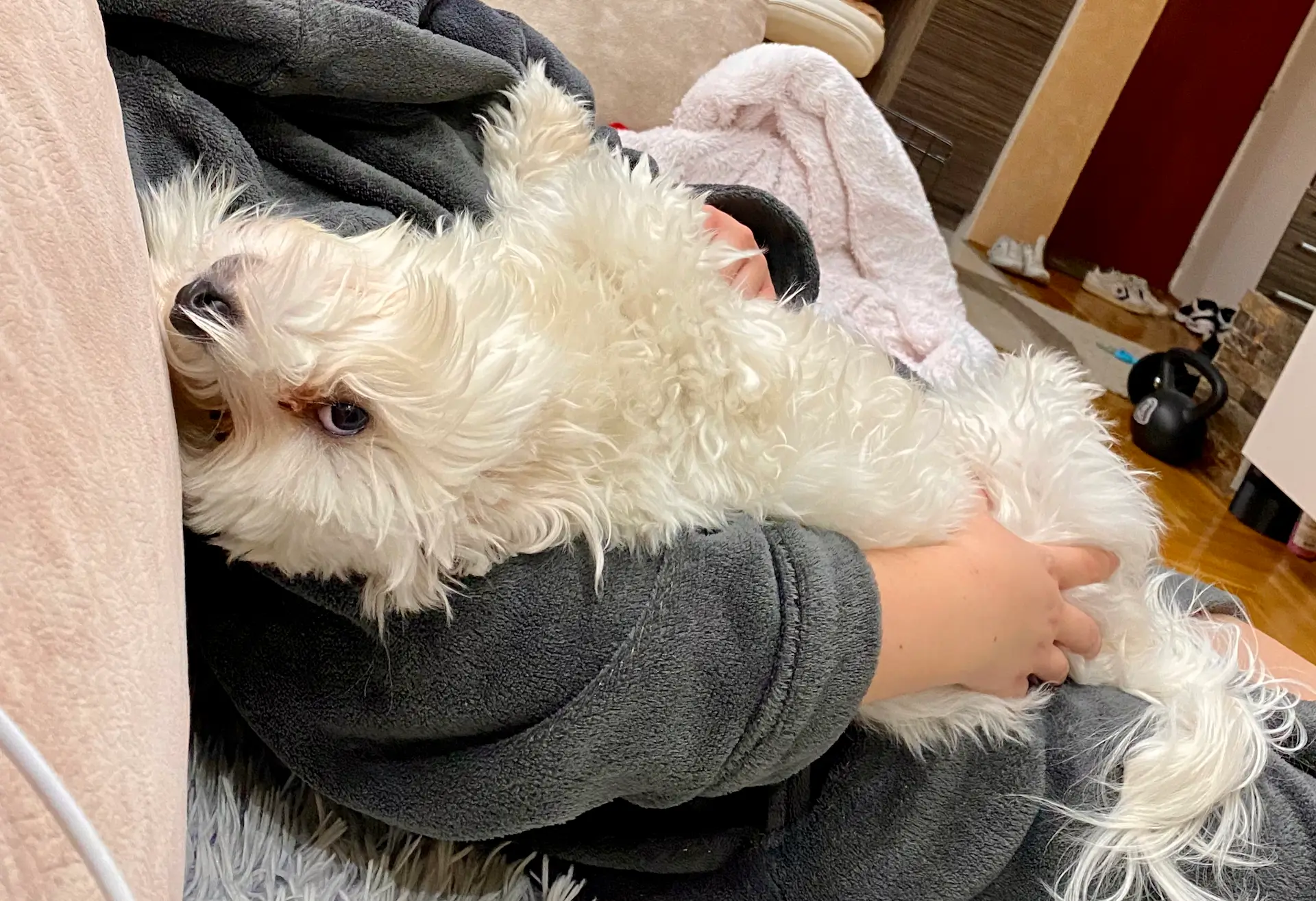
Leave a Reply